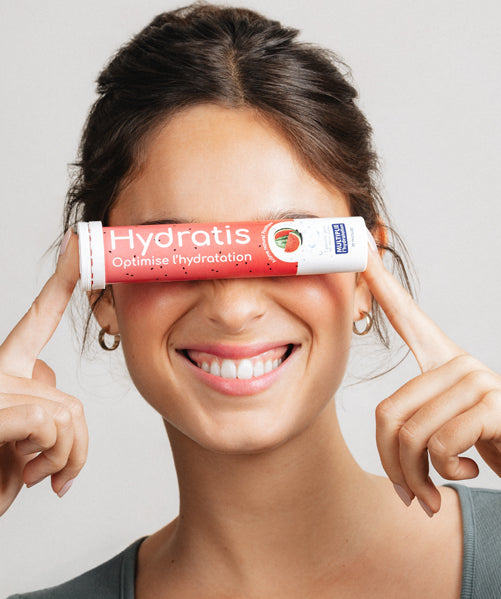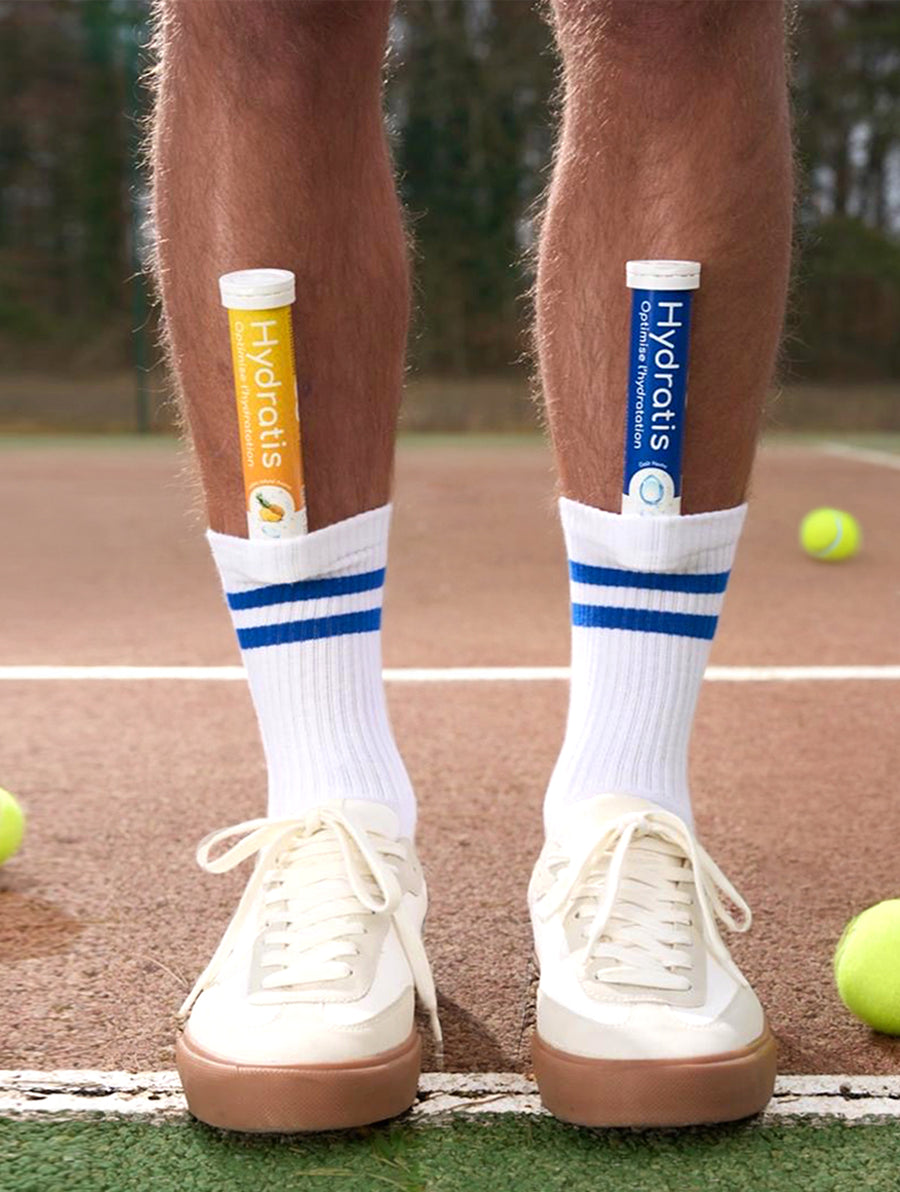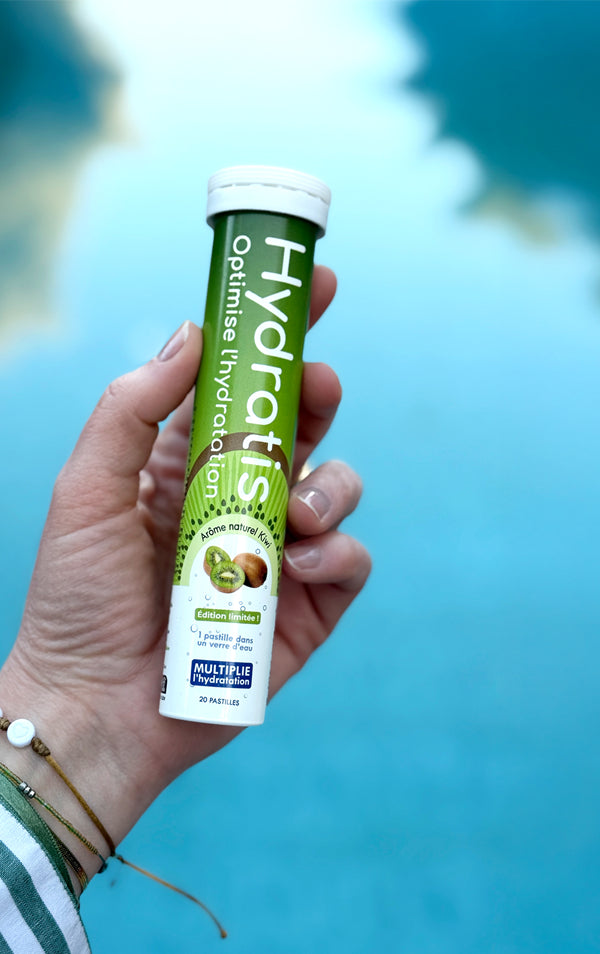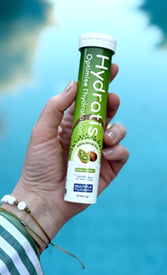Infants and young children are more vulnerable to dehydration than adults. Even a slight dehydration can have significant repercussions on their health. According to the World Health Organization (WHO) , dehydration is one of the leading causes of childhood illness . This is why, in France as elsewhere, pediatricians emphasize parental vigilance. In this article, we explain in detail how to tell if your baby is dehydrated, how to react quickly, and, most importantly, how to prevent this condition.
Why can a baby become dehydrated?
How an infant's body works: faster water loss
Your baby's body contains a much higher proportion of water than an adult's: Up to 80% of a baby's body is made up of water . This explains why even the slightest fluid loss quickly leads to a more pronounced imbalance . Furthermore, their body surface area is proportionally larger, which promotes significant water loss through the skin and respiration. Therefore, your child can become dehydrated in just a few hours if they have a fever, sweat excessively, or suffer from diarrhea and vomiting .
Inability to express thirst or to drink alone
An infant cannot tell you they are thirsty or initiate drinking . Therefore, their hydration depends entirely on you: breastfeeding or bottle-feeding until six months, then introducing small amounts of water as a supplement. Before this age, plain water is unnecessary, as breast milk or formula is sufficient to meet their hydration and nutritional needs . This inability to express thirst is thus a significant factor in the risk of dehydration . Your vigilance, as a parent, remains their best protection.
The main causes to watch out for
Fever and heat
When your child has a fever , their fluid needs increase . Every degree above 37°C exacerbates fluid loss. In summer or during a heatwave, the heat further amplifies this deficit.
Gastroenteritis and digestive infections
Loose stools and vomiting are the most common causes of infant dehydration during a Acute gastroenteritis , of viral or bacterial origin ( Escherichia coli, Salmonella, Shigella ). In this case, your baby or young child loses not only water but also essential minerals such as sodium, potassium, and chloride. The electrolyte imbalance further weakens their body.
Refusal to eat
A sick or tired baby may refuse to breastfeed or drink from a bottle . This lack of fluid intake adds to the losses already caused by fever or digestive problems. This is why some infants can become dehydrated very quickly , sometimes in just a few hours.
What are the signs of dehydration in a baby?
Visible signs to observe carefully
To know if your baby is dehydrated , pay attention to certain telltale signs : a sunken fontanelle , for example, is a warning sign to take seriously. Similarly, the absence of tears when your baby cries , a dry mouth , or a coated tongue should alert you. Their skin also becomes less elastic. If you gently pinch their arm, the crease takes a long time to disappear . You'll also notice that their diapers are less wet than usual. Finally, their behavior may change. Indeed, a dehydrated baby may appear very tired , lethargic, or, conversely, unusually agitated.
Signs according to the child's age
Less than 6 months:
- lightly wetted diapers (< 5–6/day)
- dry mouth
- difficult awakening
- weak cries
- sunken eyes

More than 6 months:
- similar signs
- unusual drowsiness
- refusal to drink or eat
- temperature variations
- loss of appetite.
What should you do if you suspect dehydration?
Increase the frequency of breastfeeding or bottle feedings
For infants under 6 months : continue to give breast milk or formula more often, as this is the most reliable source of rehydration .
For babies who have already started solids : in addition to milk, give small sips of water regularly.
Use an oral rehydration solution (ORS)
If your baby is vomiting or has diarrhea , use an oral rehydration solution (ORS ). Available in pharmacies as a powder in sachets , these solutions are reconstituted with water. They contain glucose and mineral salts and help to compensate for both fluid loss and electrolyte imbalance .
Recommended by the WHO , the American Academy of Pediatrics, and French authorities, these oral rehydration solutions are effective for mild to moderate dehydration . Before taking an oral rehydration solution (ORS), we recommend consulting a healthcare professional.
Practical advice
Use the oral rehydration solution ( ORS) according to the instructions in the package insert , because the dosage depends on the volume lost and the weight.
Give small, frequent sips (1 to 2 ml every 1 to 2 minutes) to limit vomiting.
If the child vomits, wait 10 minutes, then give them more (one spoonful every 2 to 3 minutes).
Important precautions
- Do not give a dehydrated baby only plain water in large quantities : this can dilute the remaining electrolytes.
- Avoid sodas and overly sweet fruit juices ; they worsen diarrhea .
- Keep your child in a cool environment , away from intense heat, and lightly dressed.
If the symptoms persist or worsen despite everything, consult a healthcare professional promptly.
Severe dehydration: when should you worry?
A weight loss greater than 10% of body weight constitutes an emergency . For example, an 8 kg infant who loses 800 g in a few days must be treated immediately.
Other signs also warrant immediate medical attention :
- Total refusal to feed : the baby rejects the breast or the bottle.
- Almost no urine for 6 to 8 hours : abnormally, the diapers remain dry.
- Crying without tears : an early indicator of dehydration.
- Drowsy baby : blank stare, rapid breathing, these signs indicate a worrying condition.
In the emergency room, the doctor will assess the degree of dehydration and decide on the appropriate treatment. In cases of severe dehydration , intravenous rehydration and hospitalization may be necessary to restore the child's fluid balance and body weight.
How to prevent dehydration in toddlers?

Good daily habits
During periods of heat or fever, breastfeed or bottle-feed regularly . Monitor the frequency of urination, as this is a good indicator of hydration . If your baby is over 6 months old , increase their water intake by giving small sips . Dress them in clothing appropriate for the outside temperature.
Practical tips?
- Administer an ORS at the first signs of diarrhea or vomiting.
- Weigh your baby regularly if they are sick to detect rapid weight loss.
- Keep water in the diaper bag when you're out and about.
- Refresh your child's room with good ventilation or a humidifier.
In summary: the right steps to protect your child
Dehydration in infants is a serious risk, but you can prevent it through vigilance . Remember that infants are more vulnerable because they lose water more quickly and cannot express their thirst. Watch for visible signs such as a sunken fontanelle, a dry mouth, a lack of tears, or a decrease in urination frequency.
If you suspect dehydration, act quickly to rehydrate your baby. Increase milk intake and supplement with oral rehydration solution (ORS) if digestive issues are present, maintain a cool environment, and seek medical help immediately if the situation worsens.
By adopting these simple actions and remaining attentive, you ensure your child has optimal hydration, essential for their health and well-being .
Bibliography
Kight, B.P., & Waseem, M. (2023). Pediatric fluid management. StatPearls - NCBI Bookshelf. https://www.ncbi.nlm.nih.gov/books/NBK560540/
Health Insurance. (February 26, 2025). Dehydration .
https://www.ameli.fr/assure/sante/urgence/pathologies/deshydratation
Hartman, S., Brown, E., Loomis, E., & Russell, H.A. (2019). Gastroenteritis in Children. American family physician , 99 (3), 159–165. https://pubmed.ncbi.nlm.nih.gov/30702253/
World Health Organization (WHO) & United Nations Children's Fund (UNICEF). (2004). Clinical management of acute diarrhea: WHO/UNICEF Joint Statement (WHO Reference: WHO_FCH_CAH_04.7). https://www.who.int/publications/i/item/WHO_FCH_CAH_04.7
Hubert, P. (2008). Acute dehydration in infants. Journal of Pediatrics and Childcare, 21(3), 124–132 . https://doi.org/10.1016/j.jpp.2008.03.005






